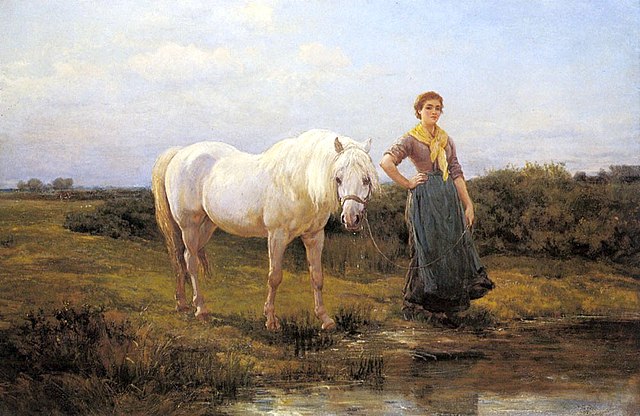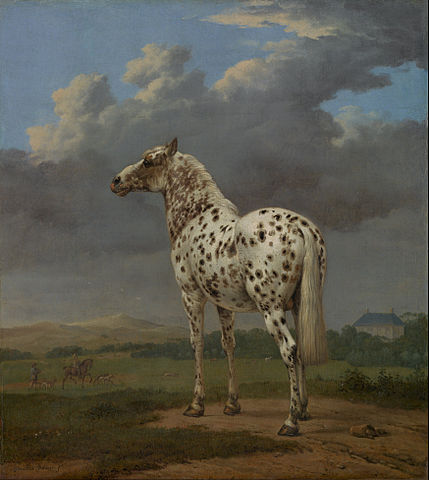
The Thammasat University Library has newly acquired a book that should be useful for students interested in business, biology, psychology, and related fields.
Circulating copies of Think Like a Horse: Lessons in Life, Leadership and Empathy from an Unconventional Cowboy are available at the Pridi Banomyong Library and Professor Sangvian Indaravijaya Library, Tha Prachan campus, and the Puey Ungphakorn Library, Rangsit Campus.
The author is Grant Golliher, who owns a ranch in Wyoming, the United States of America, where he gives motivational classes.
He argues that calm, gradual learning is better than trying to learn things under pressure by a deadline.
The TU Library collection owns many books about different aspects of horses.
As The Bangkok Post reported in 2013,
Dr Thianthada Pothipongsatorn, a veterinarian from the Lampang Pony Welfare Foundation, has been working to promote purebred Thai horses as they are one of the most naturally suited breeds to be kept either as domestic or work animals in a tropical climate. Lampang is best known around the country, especially among tourists, for its horse-drawn taxis. During the high season, particularly the New Year holidays, riders can earn a daily income of up to several thousand baht, and horsemen such as Kriengsak are beginning to see why the native breed is the key to their profession, and to the province, the image of which is synonymous with horses.
Kriengsak has realised the importance of keeping Thai horses both for domestic and commercial purposes.
“Thai horses are strong,” he explained as to why he has chosen to rely on the Thai breed. “They are easy to keep and, much more importantly, are incredibly resistant to sickness.”
According to Lampang Pony Clinic veterinarian Dr Thianthada Pothipongsatorn, the promotion of Thai horses has been a significant issue for many years _ not just in Lampang but countrywide.
“A lot of Thai horse lovers prefer to keep foreign species to Thai horses, because they are huge and tall,” explained Dr Thianthada. “Their height means more money when the horses are sold on.”
On average, a fully grown workhorse can be sold for around 30,000-40,000 baht, depending on its size and colour. But the price of a larger animal can go as high as 70,000-80,000 baht. Therefore, in order to get large, tall horses, owners cross-breed small females with larger males. The consequences of cross-breeding are larger ponies born with some significant complications, including low resistance to disease and abnormal body structure.
Lampang horses, according to the veterinarian, are among the Thai species also found in several other provinces in Thailand such as Chiang Rai, Chiang Mai and Nan. Studies carried out by Thai and American scientists have discovered that native Thai horses are related to Mongolian horses by DNA. The species is known as Przewalski, one of the planet’s only remaining wild horse breeds.
Thai horse lovers are responsible for some of the most significant threats to the population of native horses, added the expert. While many tend to cross-breed Thai mares with larger stallions of other species, owners also lack proper health knowledge, especially regarding nutrition for horses and common diseases, and other general issues, such as how to make proper horseshoes and how to take care of a horse’s hooves. This has resulted in a sharp decline in the native horse population…
Two years ago, the Thai horse industry was challenges by an outbreak of African Horse Sickness (AHS), and a vaccination program was launched.

Here are some thoughts about horses by authors, many of whom are represented in the TU Library collection:
Horse is as everyone can see.
- Benedykt Chmielowski, definition of “horse” from New Athens (1745), the first encyclopedia written in the Polish language.
A horse is dangerous at both ends and uncomfortable in the middle.
- Ian Fleming, The Sunday Times (1966)
He doth nothing but talk of his horse.
- William Shakespeare, The Merchant of Venice.
An two men ride of a horse, one must ride behind.
- William Shakespeare, Much Ado About Nothing.
A horse! a horse! my kingdom for a horse!
- William Shakespeare, Richard III. Taken from an old play, The True Tragedy of Richard the Third (1594).
And the hoof of the horses shakes the crumbling field as they run.
- Virgil, Æneid
The horse is God’s gift to mankind.
- Arabian proverb
Good people get cheated, just as good horses get ridden.
- Chinese proverb
Keep five yards from a carriage, ten yards from a horse, and a hundred yards from an elephant; but the distance one should keep from a wicked man cannot be measured.
- Indian proverb, The Little Red Book of Horse Wisdom
A horse is worth more than riches.
- Spanish proverb
The wagon rests in winter, the sleigh in summer, the horse never.
- Yiddish proverb
Don’t approach a goat from the front, a horse from the back, or a fool from any side.
- Yiddish Proverb
No one can teach riding so well as a horse.
- C. S. Lewis
No philosophers so thoroughly comprehend us as dogs and horses.
- Herman Melville
There is something about riding down the street on a prancing horse that makes you feel like something, even when you ain’t a thing.
- Will Rogers
And indeed, a horse who bears himself proudly is a thing of such beauty and astonishment that he attracts the eyes of all beholders. No one will tire of looking at him as long as he will display himself in his splendor.
- Xenophon
God forbid that I should go to any heaven in which there are no horses.
- B. Cunningham Graham
There is a lot of folklore about equestrian statues, especially the ones with riders on them. There is said to be a code in the number and placement of the horse’s hooves: If one of the horse’s hooves is in the air, the rider was wounded in battle; two legs in the air means that the rider was killed in battle; three legs in the air indicates that the rider got lost on the way to the battle; and four legs in the air means that the sculptor was very, very clever. Five legs in the air means that there’s probably at least one other horse standing behind the horse you’re looking at; and the rider lying on the ground with his horse lying on top of him with all four legs in the air means that the rider was either a very incompetent horseman or owned a very bad-tempered horse.
- Terry Pratchett, I Shall Wear Midnight
Employers are like horses — they require management.
- P. G. Wodehouse, Carry On, Jeeves
From horses we may learn not only about the horse itself but also about animals in general, indeed about ourselves and about life as a whole.
- George Gaylord Simpson

(All images courtesy of Wikimedia Commons)
